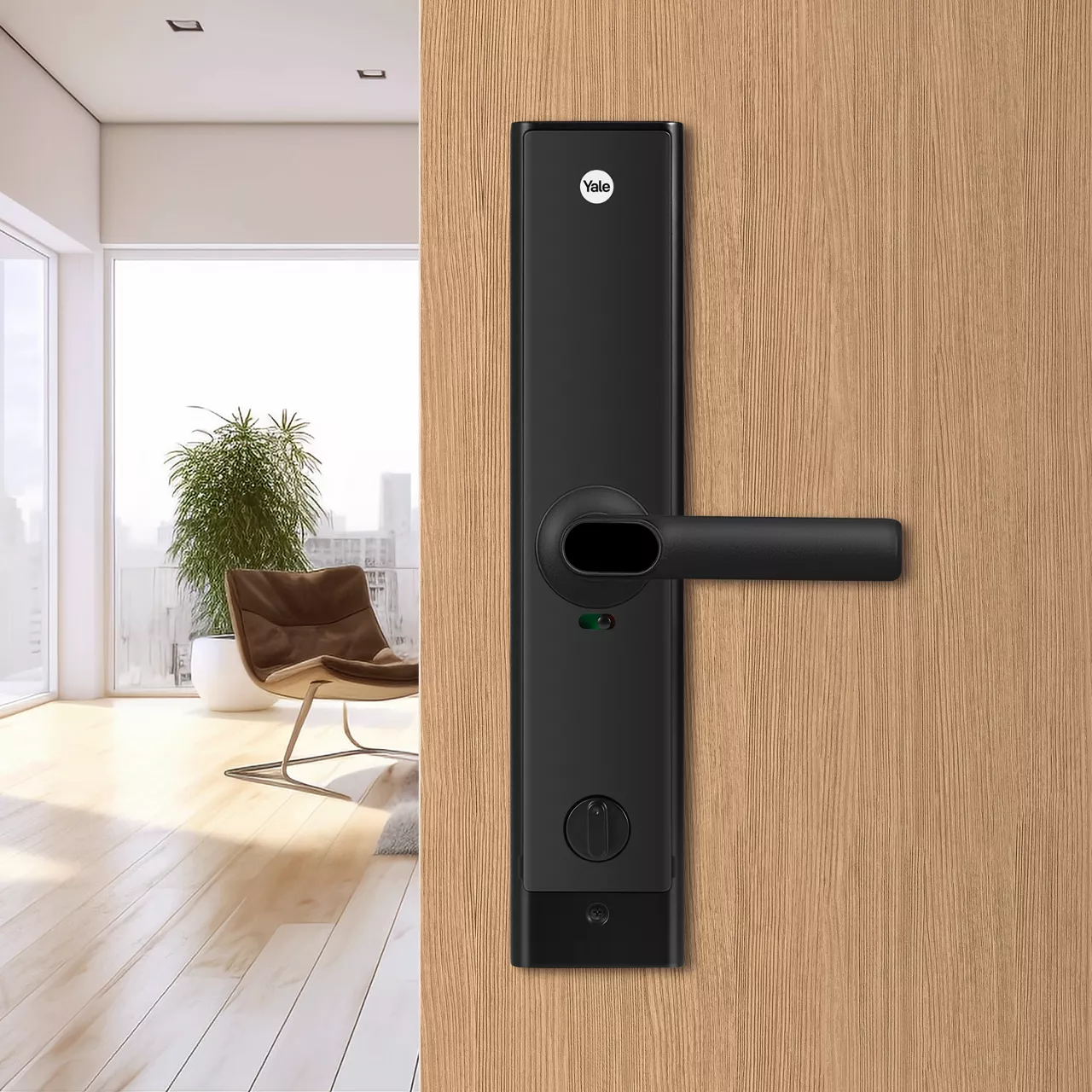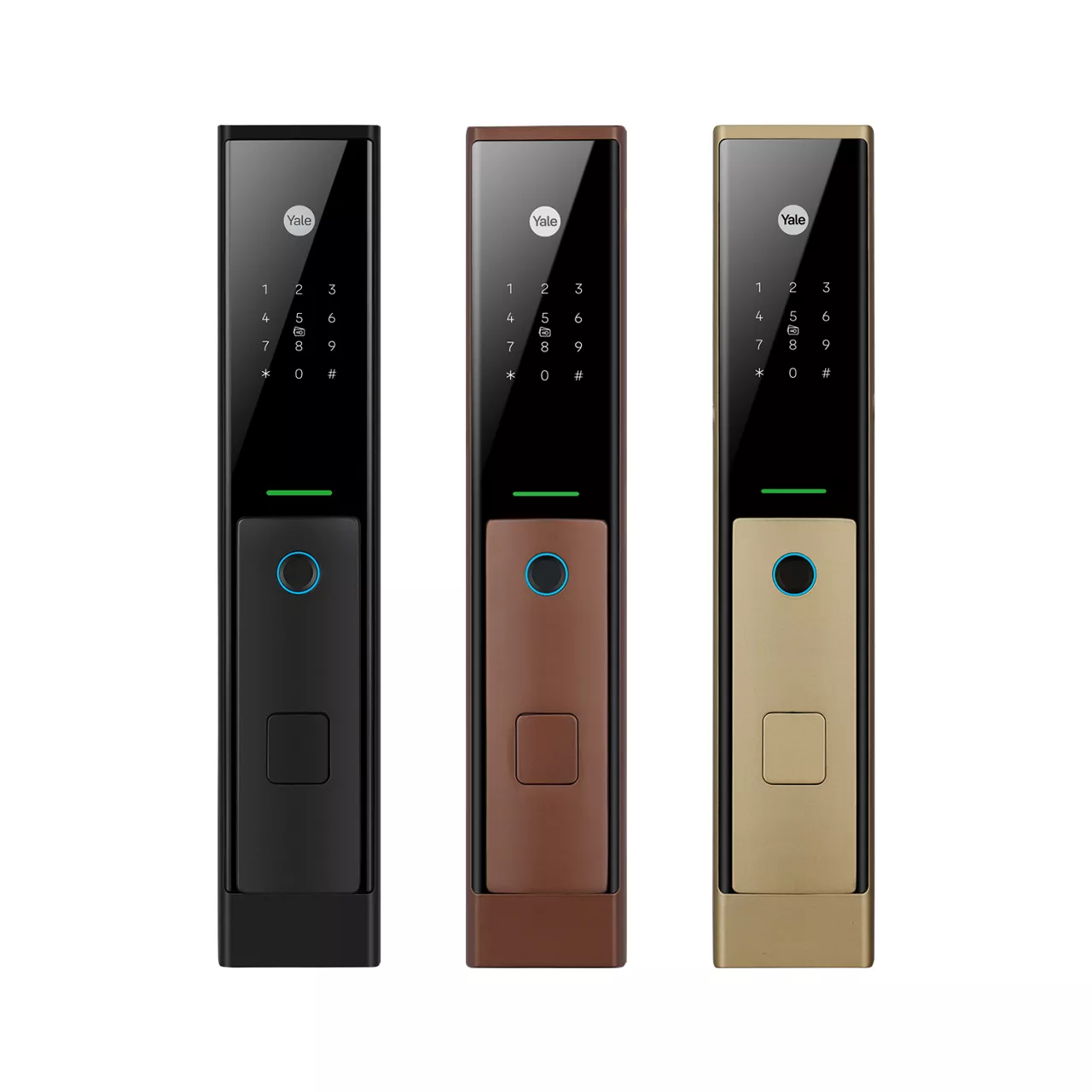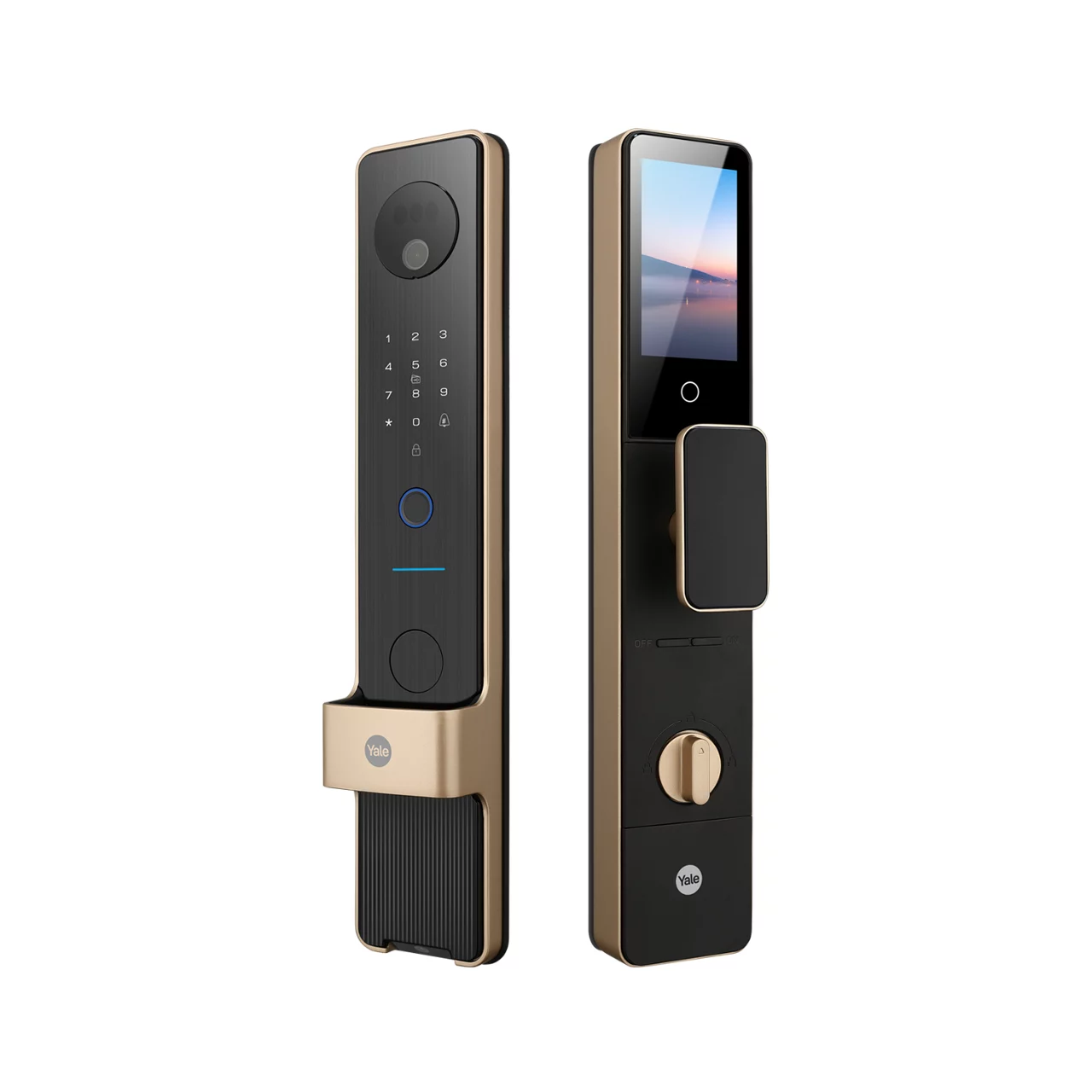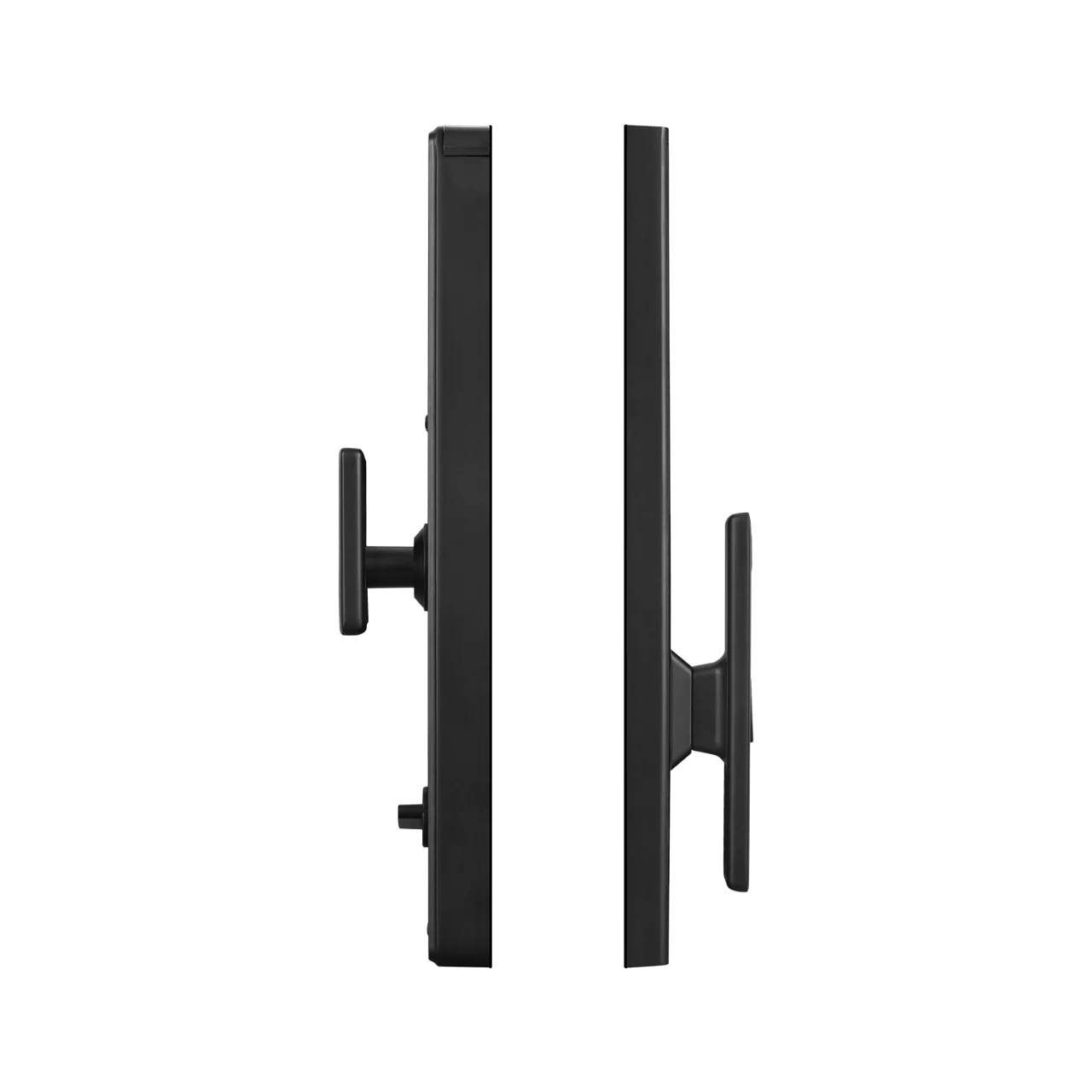As winter sets in, some households may notice that their smart locks become less responsive when the temperature drops. Since smart locks are electronic security devices at the entrance of the home, do temperature changes affect their performance? What factors could lead to a smart lock malfunction? Let’s take a closer look!
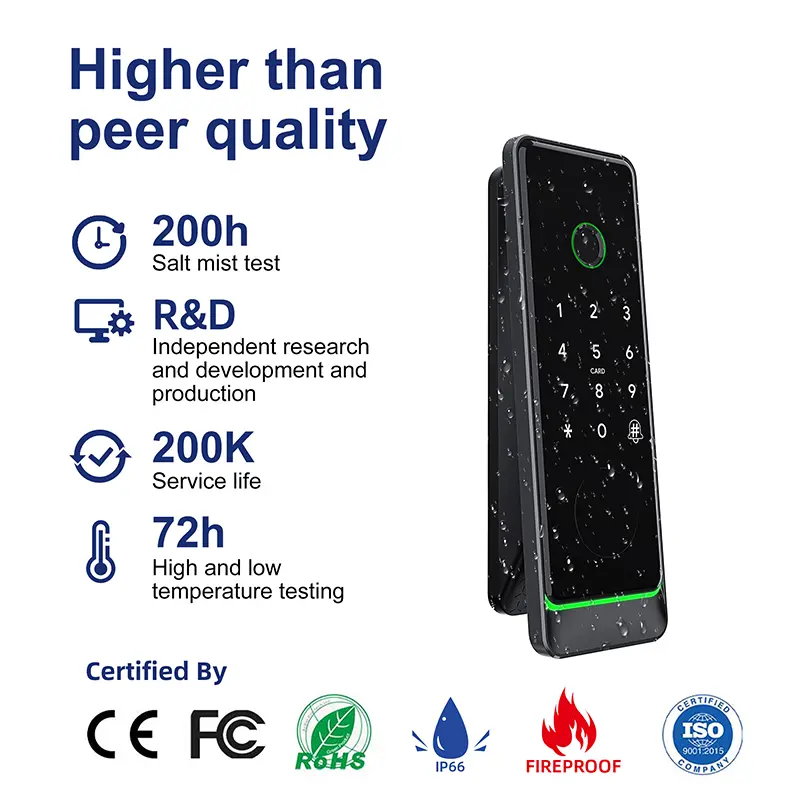
Temperature Affects Battery Capacity
Whether using dry cells or lithium batteries, cold temperatures can reduce the battery’s capacity. The chemical reaction within the battery slows down in low temperatures, which decreases the battery’s discharge rate. This can lead to shorter battery life and faster depletion.
- Alkaline vs. Regular Dry Batteries: Alkaline batteries generally have a higher capacity than regular dry batteries, and their chemical composition is less affected by the cold. Therefore, for standard smart locks, AA alkaline batteries are a better choice.
- Video Smart Locks: For locks equipped with cameras, electronic doorbells, and visual functions, which require more power, manufacturers often use higher-capacity lithium batteries. These batteries are rechargeable and designed to last longer, making them ideal for more feature-rich smart locks like JJR’s models.
Tip: To ensure your smart lock functions properly, it’s important to check the battery regularly. JJR smart locks come with a low battery reminder feature. When the battery is below 20%, the lock will issue a voice prompt saying: “Low battery, please replace the battery” to remind you to replace it.
Condensation Can Cause Battery Short-Circuiting
Most smart locks place their battery compartment on the back panel. When the indoor humidity is high and the outdoor temperature is low, condensation can form on the back panel. If cold air enters the room, moisture may accumulate and seep into the battery compartment, potentially causing a short-circuit and malfunctioning the lock.
- What You Can Do: When temperatures drop, make sure to close windows and doors tightly to minimize cold air infiltration. At home, you can open windows occasionally to ventilate and reduce indoor humidity.
- JJR Smart Locks' Design: To combat condensation, many JJR smart locks feature a double-layer protective design for the battery compartment. In addition to the outer battery cover, there is an inner partition that both secures the battery and provides extra protection against moisture, ensuring better performance.
Dry Fingers May Affect Fingerprint Recognition
In cold and dry winter conditions, your fingers may not be recognized by the lock’s fingerprint sensor. This can happen due to:
- Low temperatures making the skin less responsive, or
- Dry skin causing peeling or cracks, leading to poor fingerprint recognition.
- JJR Smart Locks’ Fingerprint Sensor: JJR locks use high-sensitivity semiconductor fingerprint sensors that can detect finer details of your fingerprints, even through damaged or dry skin. Additionally, these sensors feature a fingerprint recognition repair function. If your finger is slightly worn or peeling, the sensor can still restore some of the fingerprint image, ensuring accurate identification.
Tip: If your fingers are significantly damaged, it's a good idea to register multiple fingerprints as backups. If the fingerprint still isn’t recognized and there’s no damage to your skin, clean the sensor using a dry, soft cloth to remove any dirt or debris.
These are the primary factors that can cause smart locks to malfunction during winter. If you’ve ruled out these issues and your smart lock is still experiencing problems like unresponsive fingerprint recognition, a stuck locking mechanism, or difficulty with the key insertion, avoid using lubricant sprays. Instead, contact the manufacturer’s customer service or an authorized technician for assistance.
JJR is the #1 smart lock brand in China. We offer high-quality and affordable smart locks for wholesale purchase. Contact us today for more information!





